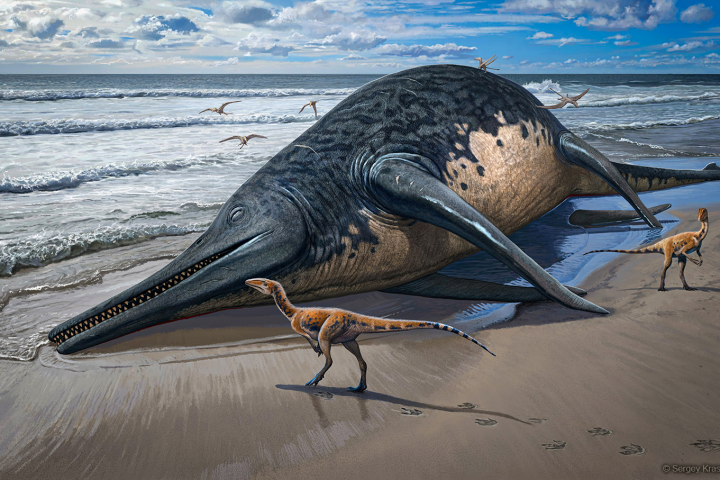Exactly how life first emerged from non-living matter is one of the most enduring mysteries of science. In a new study, Japanese scientists have created self-replicating protocells in the lab, which they say could represent the “missing link” between chemistry and biology.
Primitive Earth was covered with a sludgy mix of chemicals, containing organic molecules that formed the precursors for vital biological components like proteins and amino acids. There are several different hypotheses for how and where life sprang out of this soup, but one of the first ideas was known as chemical evolution, which is what the new study investigated.
“Chemical evolution was first proposed in the 1920s as the idea that life first originated with the formation of macromolecules from simple small molecules, and those macromolecules formed molecular assemblies that could proliferate,” says Muneyuki Matsuo, first author of the study. “However, the origin of molecular assemblies that proliferate from small molecules has remained a mystery for about a hundred years since the advent of the chemical evolution scenario. It has been the missing link between chemistry and biology in the origin of life.”
So for the new study, the researchers set out to recreate this kind of self-propagating protocell in the lab. They started by combining amino acid derivatives to create a new small molecule that was primed to self-assemble into primitive cells. They added this mix to water at room temperature and normal atmospheric pressure, and watched what would happen.
The molecules condensed into peptides, which then formed droplets suspended in the water. When more amino acids were added – as might occur in nature – the droplets not only grew in size, but began to divide. This kind of self-reproduction is of course a key function of biological cells.
But most intriguingly, some of the droplets concentrated nucleic acids – macromolecules that can carry genetic information. Those droplets that did so were more likely to survive in the environment, demonstrating natural selection at work.
“By constructing peptide droplets that proliferate with feeding on novel amino acid derivatives, we have experimentally elucidated the long-standing mystery of how prebiotic ancestors were able to proliferate and survive by selectively concentrating prebiotic chemicals,” says Matsuo. “Our results suggest that droplets became evolvable molecular aggregates – one of which became our common ancestor.”
Of course, this find doesn’t guarantee that this is definitely how life arose on early Earth, but it does lend weight to the possibility. Other studies are investigating other hypotheses, such as whether RNA were the first self-replicating molecules that eventually gave rise to more complex structures like DNA and proteins.
The researchers on the new study plan to continue investigating how amino acid derivatives might evolve into living cells by way of self-replicating droplets.
The research was published in the journal Nature Communications.
Source: Hiroshima University




